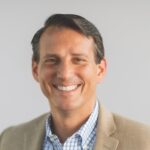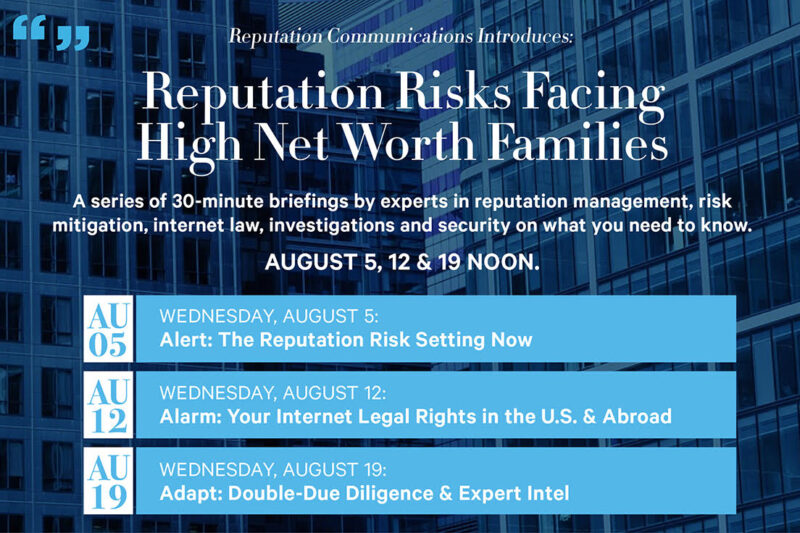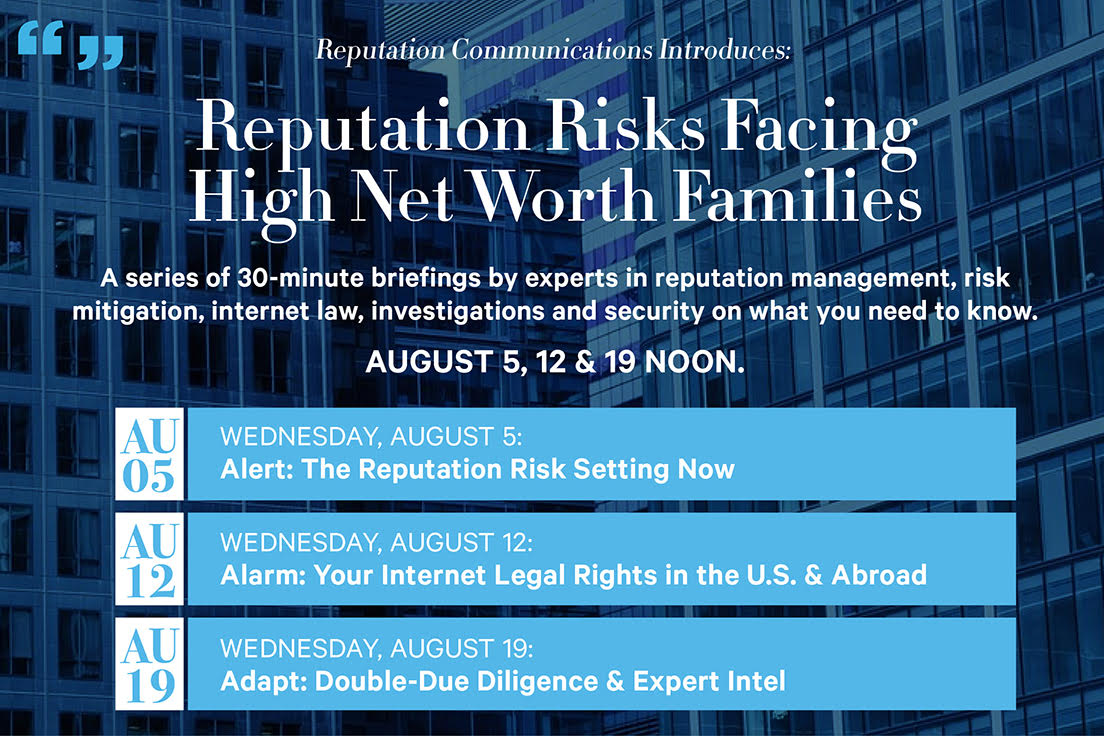
 David Niccolini is a Reputation Communications Advisory Board member, and a serial entrepreneur with over 25 years of professional experience. His work has spanned over six continents and across dozens of industry verticals, and his expertise is now sought after by multinational corporations, high-net-worth family offices, and senior executives from business, NGOs, and the U.S. Government.
David Niccolini is a Reputation Communications Advisory Board member, and a serial entrepreneur with over 25 years of professional experience. His work has spanned over six continents and across dozens of industry verticals, and his expertise is now sought after by multinational corporations, high-net-worth family offices, and senior executives from business, NGOs, and the U.S. Government.
Through his most recent venture, Evidencity, he has become a passionate advocate for efforts to combat human trafficking around the globe. We interviewed him about the reputation risks for organizations whose vendors use exploited labor in their supply chains.
What are the numbers of enslaved workers worldwide, and how many are estimated to be working for vendors who sell to multinational organizations?
When addressing modern slavery, it is hard to talk in exact numbers. Criminals don’t publicly report out their numbers on a monthly or quarterly basis. However, there are some global entities that have tried to estimate the associated numbers. According to the International Labour Organization (ILO), a United Nations agency, “49.6 million people were living in modern slavery in 2021, of which 27.6 million were in forced labour and 22 million in forced marriage. Of the 27.6 million people in forced labour, 17.3 million are exploited in the private sector” and “12% of all those are children.” As a depressing comparison, the last time the ILO comprehensively studied this problem was in 2016, when the ILO estimated that a total 40.3 million people were living in modern slavery. So whatever the exact numbers are, it is getting significantly worse over time.
Another great organization that tries to keep up with this growing global problem is The Mekong Club, a non-profit based in Hong Kong. Matthew Friedman is the CEO, and does incredible work on these issues. The Mekong Club estimates that there are currently over 16 million people trapped in forced labor within the private global supply chain.
Aside from the moral crisis in profiting from enslaved workers, what are the reputation risks for corporations who are found to support human trafficking?
The reputational risks for corporations, and the executives that lead those organizations, are significant and substantial. There are new demographic realties when it comes to consumers. Millennials and Gen Z are much more engaged than their parents and grandparents (Gen X, Boomers) with what they’re using, eating, wearing, driving, etc. They expect the companies they buy from to care as much as they do. A perfect example of this playing out happened late last year, when the artist Dua Lipa challenged Apple CEO Tim Cook on whether or not he could guarantee that child labor had not be involved in producing her new iPhone 15. That clip is now on multiple social media platforms where is has been watched over a million times. So, yes, I would say that in this day and age, the reputational risks are very real.
How can organizations vet their supply chains to ensure they are not unknowingly profiting from enslaved workers?
First and foremost, there has to be someone who cares–or better yet, a group of people who really care–within the organization. The reason I start there is that unfortunately, in many corporations, compliance has become a check the box exercise. I do not blame anyone for this, it is just the reality. Budgets and time are tight, the Wall Street analysts are watching, and no profits are made by getting an A+ on your supply chain audit, when a solid C will get you a passing grade. The incentives are simply not currently in place. However, with dedicated leadership, I believe that things can change, company by company. The good news is that once the will to change is truly present, the technology now exists that allows for increased global supply chain transparency without busting budgets. It becomes possible with the right combination of big data analytics and algorithms, machine learning, and now, even artificial intelligence.
What resources do you recommend to organizations who want to learn more about this issue?
There are so many good people around the world working on these issues from so many angles, from non-profits, to NGOs, to government agencies, and now, even investors and for-profit companies like mine. It would be impossible to list them all, but some examples include the Human Trafficking Institute, Stop the Traffik, the Blue Campaign out of the U.S. Department of Homeland Security, and Truckers against Trafficking.
Moreover, I would recommend your readers look to the growing number of business alliances that are developing around this issue of increased supply chain transparency to fight forced labor. Some examples of those organizations include:
· The Responsible Business Alliance (RBA)
As an advocate for this issue, how do you educate people about it?
First and foremost, I talk with anyone who is willing to listen. So, I would like to thank you, Shannon, and your readers for talking the time to care and to listen. I also try to speak on the topic where and when I can. Two examples of that advocacy are my presentations, “Tackling Human Trafficking with a Coordinated Global Response” at the U.S. Chamber of Commerce in November 2023, and “Innovative Ways the Private Sector is Tackling the Scourge of Human Trafficking” at Faith & Law on U.S. Capitol Hill in February 2023. This month I will be attending the 3rd annual Design for Freedom Summit, where leading experts across sectors are working together to eradicate forced and child labor from the 12 trillion-dollar construction industry, and its associated building materials supply chain. In May, I will be participating in a panel discussion on Forced Labor sponsored by the Banu Foundation at the Johns Hopkins University School of Advanced International Studies in Washington, DC.
Finally, my firm Evidencity regularly posts on these issues via our LinkedIn Article Series (two examples are EV Batteries and China and Haiti’s financial inclusion journey). I would encourage anyone that is interested to follow our company page on LinkedIn.
This is part of our continuing series of interviews with experts whose work relates to reputation management.




